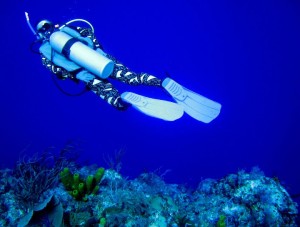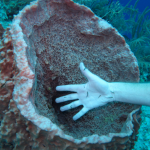
Lillian Tuttle is a PhD. student from Mark Hixon’s lab at Oregon State University, who is working at CEI for 90 days this summer studying the lionfish invasion. Broadly, Lillian is interested in the interactions among invasive lionfish, native parasite communities, and native cleaning symbioses. Her past research demonstrates that invasive lionfish have escaped the threat of parasitic infection here in the Atlantic, especially when compared to native fishes that are chocked full of parasitic worms and crustaceans. Without the need to fight infection, lionfish might be able to put more energy into growth and reproduction, perhaps explaining some of their success as an invasive species. But if lionfish don’t have parasites, might they still change the way that native fish get parasites?

This brings us to Lillian’s project this summer. Thus far, Lillian has logged many hours of observation and deployed many GoPro cameras to detect what lionfish are doing at cleaning stations, locations on the reef where small “cleaner” gobies and shrimp pick the parasites off the skin of larger fish “clients” (think, car washes in the sea!). Are lionfish eating cleaners? Are lionfish eating clients? Or might the slow, stalking, hunting behavior of lionfish interrupt cleaning somehow? These are all questions Lillian hopes to answer this summer at CEI.